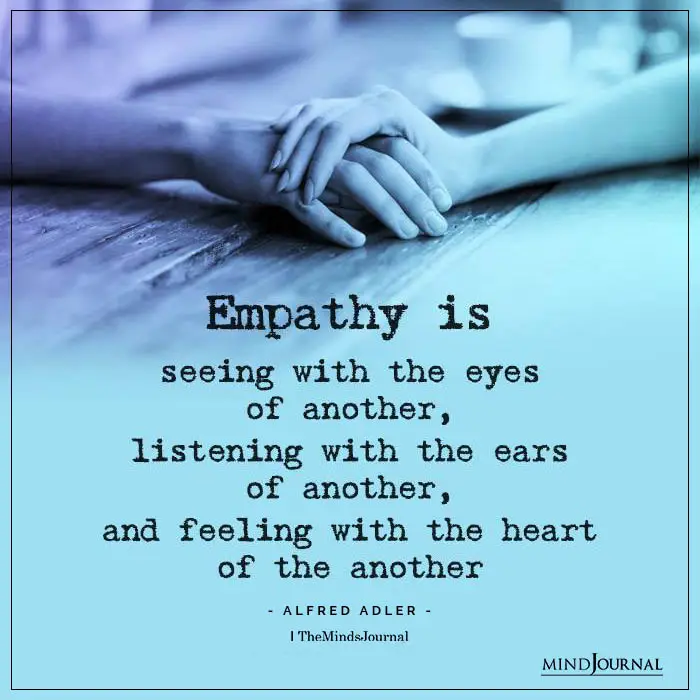Narcissists can be charming, charismatic, seductive, exciting, and engaging. They can also act entitled, exploitative, arrogant, aggressive, cold, competitive, selfish, obnoxious, cruel, and vindictive. You can fall in love with their charming side and be destroyed by their dark side.
It can be baffling, but it all makes sense when you understand what drives them. That awareness protects you from their games, lies, and manipulation.
Narcissists have an impaired or undeveloped self. They think and function differently from other people. They behave as they do because of the way their brain is wired, whether due to nature or nurture.
Remember that the severity of narcissism varies. Some people have more symptoms with greater intensity, while other narcissists have fewer, milder symptoms. The following discussion thus may not apply to all narcissisic people to the same degree.
1. Narcissists are very vulnerable
Despite having seemingly strong personalities, they are actually very vulnerable. Psychotherapists consider them to be “fragile.” They suffer from profound alienation, emptiness, powerlessness, and lack of meaning.
Due to their extreme vulnerability, they crave power and vigilantly must control their environment, people around them, and their feelings. Displays of vulnerable feelings, such as fear, shame, or sadness are intolerable signs of weakness both in themselves and others.
Their defense system, discussed below, protects them, but hurts other people. When they feel most insecure, they’re more malicious and the impact of their actions is irrelevant.
Read When Narcissist Tell You You’re Hard To Love
2. Narcissists have toxic shame
Underneath their façade is toxic shame, which may be unconscious. Shame makes narcissistic people feel insecure and inadequate―vulnerable feelings that they must deny to themselves and others.
This is one reason that they can’t take criticism, responsibility, dissent, or negative feedback even when meant to be constructive.
Instead, they demand unconditional, positive regard from others. Here’s how
1. Arrogance
To compensate for feeling inferior, they maintain an attitude of superiority. They’re often arrogant, critical, and disdainful of other people, including entire groups they consider inferior, such as immigrants, a racial minority, a lower economic class, or people of less education.
Like bullies, they put down others to raise themselves up.
Read 4 Ways You Can Unintentionally Fall In Love With A Narcissistic person
2. Grandiosity
Their hidden shame accounts for their braggadocio and self-aggrandizement. They’re trying to convince themselves and others that they excel, that they’re uniquely special and the best, smartest, richest, most attractive, and most talented.
This is also why they gravitate toward celebrities and high-status people, schools, organizations, and other institutions.
Being with the best convinces them they’re better than others, while internally, they’re not so sure.
3. Entitlement
Narcissists feel entitled to get what they want from others regardless of their behavior. Their sense of entitlement masks their inner shame and insecurity. They convince themselves that they’re superior and it follows that they deserve special treatment.
For example, their time is more valuable than others, and they shouldn’t have to wait in line like the masses. There is no limit on what they might expect from others.
Interpersonal relationships are a one-way street, because other people are considered inferior and not separate from them (see below). They don’t recognize their behavior as hypocritical, because they feel superior and special. Rules for other people don’t apply to them.
3. Due to lack of empathy

Narcissists’ ability to respond emotionally and express appropriate care and concern is significantly impaired. According to the Diagnostic and Statistical Manual of Mental Disorders, narcissists lack empathy. They’re “unwilling to recognize or identify with the feelings and needs of others.” (APA, 2013)
Research shows that they have structural abnormalities in brain regions associated with emotional empathy. They may claim they love you, but you must determine whether you feel loved by the way they treat you.
Real love requires empathy, compassion, and deep knowledge of the one we care for. We show active concern for that person’s life and growth. We try to understand their experience and world view though it may differ from ours.
If you haven’t experienced such genuine love or it was mixed with abuse, then you may not appreciate real love nor expect to be treated any better.
Without empathy, narcissists can be selfish, hurtful, and cold when it doesn’t serve them to be charming or cooperative. To them relationships are transactional. Rather than respond to feelings, they’re interested in getting their needs met―sometimes, even if it means exploiting others, cheating, lying, or breaking the law. Although they may feel excitement and passion in the early stages of a relationship, this is not love, but lust. They’re known for their game-playing.
Sacrificing for a loved one isn’t in their playbook. Their lack of empathy also inures them to the pain that they cause others, while their cognitive, emotional intelligence gives them an edge in manipulating and exploiting others to get their needs met.
Read What is a Covert Narcissism?
4. Emptiness and lack of emotional connection
Narcissists lack a positive, emotional connection to themselves, making it difficult for them to emotionally connect with others. Their undeveloped self and deficient inner resources require them to be dependent on others for validation.
Rather than confidence, they actually fear that they’re undesirable. They can only admire themselves as reflected in the eyes of others. Hence, despite their boasting and self-flattery, they crave attention and constant admiration. Because their sense of self is determined by what others think of them, they try to control what others think to feel better about themselves.
They use relationships for self-enhancement and for their “narcissistic supply.” However, due to their inner emptiness, they’re never satisfied. Whatever you do for them is never enough to fill their emptiness. Like vampires who are dead inside, narcissists exploit and drain those around them.
5. Lack of boundaries

Mythological Narcissus fell in love with his own image, as reflected in a pool of water. At first, he didn’t realize that it was himself. This metaphorically describes narcissists.
Narcissists’ inner emptiness, shame, and undeveloped self make them uncertain of their boundaries. They don’t experience other people as separate individuals, but as two-dimensional, extensions of themselves, without feelings, since they cannot empathize.
Other people only exist to meet their needs. This explains why narcissists are selfish and oblivious to their impact on others, even when they’re cruel.
Want to know more about the dubious things narcissists do? Then check out this piece here 12 Weird Things Narcissists Do
6. Use of defense mechanism to protect their vulnerability
It’s the defense mechanisms used by narcissists to protect their vulnerability that make relationships with them so difficult.
Common defenses they use are arrogance and contempt, denial, projection, aggression, and envy.
1. Arrogance and contempt
These defenses inflate a narcissist’s ego with an air of superiority to shield against unconscious feelings of inadequacy. It also shifts shame by projecting inferiority onto others.
2. Denial
Denial distorts reality so that a narcissist can live in an inflated bubble of their own fantasy world to protect their fragile ego. They distort, rationalize, twist facts, and delude themselves to avoid anything that may cause a chink in their armor, which is so thick, that to some narcissists, no amount of evidence or argument can get through.
Read How to Leave Narcissists or Abuser
3. Projection and blame

This defense enables unacceptable feelings, thoughts, or qualities to be disowned and mentally or verbally attributed to someone else. Blame shifts responsibility, so the narcissist is blameless. This defense serves the same function as denial.
Projection is an unconscious process, whereby a narcissist doesn’t have to experience anything negative in him or herself, but sees it as external. Those traits are projected onto someone else or a group of people instead. You become the one who is selfish, weak, unlovable, or worthless.
Projection is very crazy-making and damaging to the self-esteem of people close to a narcissist, especially children.
4. Aggression
Aggression is used to create safety by pushing people away. Narcissists see the world as hostile and threatening, and they move against people aggressively, both in word and behavior. This can lead to narcissistic abuse.
Vindictive narcissists retaliate in order to reverse feelings of humiliation and restore their pride by defeating their offender.
Read Hoovering: Ways Narcissists Reels You Back In
5. Envy
Narcissists must be the best. They can’t take pleasure in someone else’s success. If someone else has what they want, it makes them feel inferior. Life is a zero-sum game.
Competitive narcissists are not only envious of people who have what they want; they may react vengefully to bring them down, especially if they feel threatened. They are often envious and competitive with their children.
Understanding who you’re dealing with is very helpful, but finding out what you can do is more important. If you love a narcissist, the exercises and strategies in Dealing with them can give you clarity about how to get your needs met and how to evaluate whether to stay in the relationship.
Email me if you’d like to join my mailing list and receive a “Checklist of Narcissistic Behaviors.”
© Darlene Lancer 2019 Written by Darlene Lancer Originally appeared on WhatIsCoDependency.com Republished with permission.









